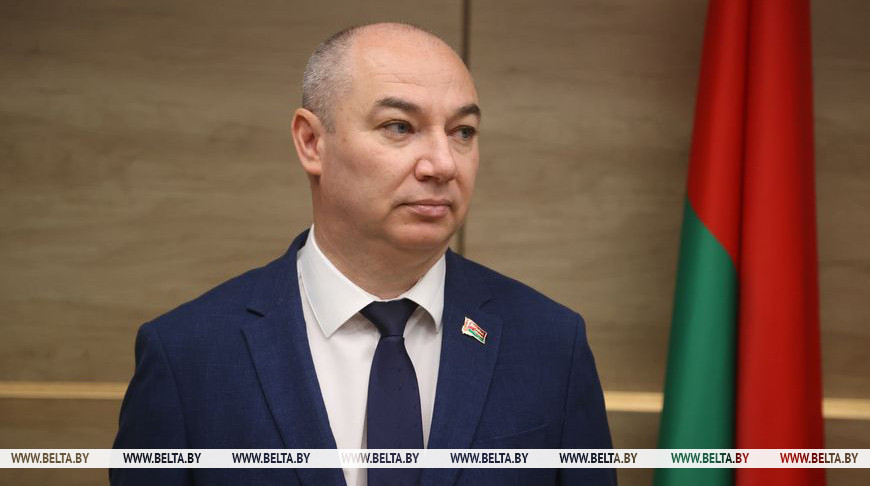
MOGILEV, 23 September (BelTA) – Belarusian Healthcare Minister Aleksandr Khodzhayev named the key points for the development of the healthcare sector within the Belarus-Russia Union State as he spoke at the session of the Council of the Parliamentary Assembly of the Union State of Belarus and Russia on 23 September, BelTA has learned.
Among the main areas, the minister named the organization of cross-border telemedicine consultations, which can help ensure accessibility of medical care for citizens of the two states; active cooperation between scientific and medical healthcare organizations of Belarus and Russia, which will facilitate the exchange of experience, transfer of new technologies and development of joint projects; partnerships between educational medical organizations in training and advanced training of personnel; ways to improve cooperation in disaster medicine to jointly overcome emerging risks and threats; deepening of cooperation in the pharmaceutical industry.
According to Aleksandr Khodzhayev, the main goal of the Union State's social policy is to preserve health and improve the living standards of the population. “Developing cooperation in healthcare, Belarus and Russia strive to make medical care available to all their citizens, and to significantly improve the quality of this care, which is reflected in both bilateral and multilateral international treaties and agreements,” he said.
He added that high-tech medical care provided in Belarus is in demand among Russians. “For example, in 2023, some 310 high-tech medical interventions were performed on Russians at the Alexandrov National Cancer Center of Belarus. 24 women underwent high-tech operations at the National Scientific and Practical Center Mother and Child. Those included 16 IVF. 17 more operations were performed on Russian citizens at the Minsk Scientific and Practical Center of Surgery, Transplantology and Hematology,” he said.
In total, almost 59,000 Russian citizens received medical care in Belarus in 2023.
In his speech Aleksandr Khodzhayev also highlighted the issues related to the harmonization of legislation of both countries in the organization and provision of medical care, joint scientific research, digital transformation of healthcare, pharmaceutical industry.
Among the main areas, the minister named the organization of cross-border telemedicine consultations, which can help ensure accessibility of medical care for citizens of the two states; active cooperation between scientific and medical healthcare organizations of Belarus and Russia, which will facilitate the exchange of experience, transfer of new technologies and development of joint projects; partnerships between educational medical organizations in training and advanced training of personnel; ways to improve cooperation in disaster medicine to jointly overcome emerging risks and threats; deepening of cooperation in the pharmaceutical industry.
According to Aleksandr Khodzhayev, the main goal of the Union State's social policy is to preserve health and improve the living standards of the population. “Developing cooperation in healthcare, Belarus and Russia strive to make medical care available to all their citizens, and to significantly improve the quality of this care, which is reflected in both bilateral and multilateral international treaties and agreements,” he said.
He added that high-tech medical care provided in Belarus is in demand among Russians. “For example, in 2023, some 310 high-tech medical interventions were performed on Russians at the Alexandrov National Cancer Center of Belarus. 24 women underwent high-tech operations at the National Scientific and Practical Center Mother and Child. Those included 16 IVF. 17 more operations were performed on Russian citizens at the Minsk Scientific and Practical Center of Surgery, Transplantology and Hematology,” he said.
In total, almost 59,000 Russian citizens received medical care in Belarus in 2023.
In his speech Aleksandr Khodzhayev also highlighted the issues related to the harmonization of legislation of both countries in the organization and provision of medical care, joint scientific research, digital transformation of healthcare, pharmaceutical industry.













